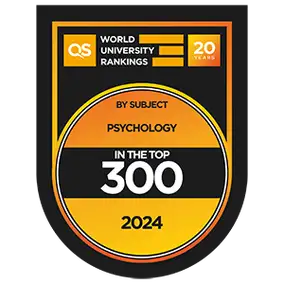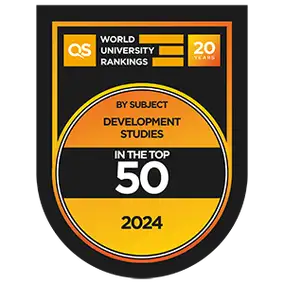Where you can study
International students
International students are not New Zealand citizens or residents.
Specialise in Disaster Management for your Master of Sustainable Development Goals at Massey
The Master of Sustainable Development Goals (Disaster Management) is a 180-credit taught degree focusing on the theory and practice of the United Nations Sustainable Development Goals (SDGs). The qualification addresses the most pressing issue facing humanity and the planet: sustainability. This degree is unique in Australia and New Zealand.
What are the Sustainable Development Goals?
The SDGs are the UN’s ambitious macro-level plan for humankind’s development and sustainability. The goals address global challenges including those related to poverty and inequality, climate and environmental degradation, prosperity, peace and justice.
Follow your interests
You’ll take two core courses in sustainable development. The first will introduce you to theories of sustainable development and the SDGs. The second will focus on multi-disciplinary frameworks. You’ll examine how to measure progress against the SDGs, as well as the paradigms of indigenous knowledge and practice in the field of sustainability.
Then, you’ll move on to your subject of disaster management. Courses cover topics such as:
- coping with disasters
- emergency management
- emergency management in practice, and
- natural hazards.
Real-world experience
The final component of your degree is a student practicum during which you will work in a relevant organisation and gain experience in the implementation of the SDGs. If relevant and viable, you may be able to complete your practicum in your current place of work. Alternatively, you may choose another organisation or ask the Massey staff to help you find an appropriate agency for your practicum. International students can choose to stay and complete their practicum in New Zealand, or travel back to their home country and complete it there.
A Master of Sustainable Development Goals in Disaster Management is a good fit if you:
- want to address sustainability problems
- seek skills in helping communities to prepare for and recover from disasters
- are interested in alternatives to the dominant Western paradigm.
Planning information
The Master of Sustainable Development Goals (Disaster Management) is a parts-based qualification. That means you must complete the first part, before moving to the second.
Part One is coursework and Part Two is a student practicum.
For progression from Part One to Part Two, you must achieve a Grade Average of at least a B over the 120 credits of the Part One courses.
If you study full-time, you’ll take 120 credits per year or 60 credits per semester.
Official regulations
To understand what you need to study and must complete to graduate read the official rules and regulations for this qualification.
You should read these together with all other relevant Statutes and Regulations of the University including the General Regulations for Postgraduate Degrees, Postgraduate Diplomas, and Postgraduate Certificates.
Returning students
For returning students, there may be changes to the majors and minors available and the courses you need to take. Go to the section called ‘Transitional Provisions’ in the Regulations to find out more.
In some cases the qualification or specialisation you enrolled in may no longer be taking new enrolments, so may not appear on these web pages. To find information on the regulations for these qualifications go to the Massey University Calendar.
Please contact us through the Get advice button on this page if you have any questions.
Courses you can enrol in
Course planning key
- Prerequisites
- Courses that need to be completed before moving onto a course at the next level. For example, a lot of 200-level courses have 100-level prerequisite courses.
- Corequisites
- Courses that must be completed at the same time as another course are known as corequisite courses.
- Restrictions
- Some courses are restricted against each other because their content is similar. This means you can only choose one of the offered courses to study and credit to your qualification.
Core courses for the Master of Sustainable Development Goals
As well as the specialisation courses listed below, this qualification has core courses that you will need to complete.
Master of Sustainable Development Goals core courses
Disaster Management courses
Part One Subject courses
Course code: 130701 Natural Hazards 30 credits
A study of natural hazards and their effects. Specific attention will be paid to earthquakes, windstorms, flooding, volcanicity, tsunamis and landslips and their impact on people and the environment. Hazards particularly relevant to New Zealand will be emphasised.
View full course detailsCourse code: 130702 Coping with Disasters 30 credits
Study of the human issues and problems involved in preparing for and coping with disasters. Attitudes towards disaster preparation are studied together with the nature of disasters and their effects on human beings. The organisation and control of human behaviour during disasters will be studied together with rehabilitation interventions, particularly for the alleviation of stress for those involved.
View full course detailsCourse code: 130705 Emergency Management 30 credits
An examination of the social, psychological, community and organisational aspects of disaster management in New Zealand. Emphasis is on the development and implementation of an all-hazards, comprehensive and integrated approach to emergency management. Selected readings and case studies will be used to facilitate the development of an effective response to social, psychological, community and organisational issues.
View full course detailsCourse code: 130706 Emergency Management in Practice 30 credits
This course studies the practical application of current emergency management theory. The emphasis is on examining a specific topic area, analysing current trends and discussing practices that will enhance reduction, readiness, response and recovery efforts in managing disasters and emergencies.
View full course detailsCourse code: 132751 Natural Hazards and Resilient Communities 30 credits
A study of natural hazards and the role of planning in building sustainable and disaster resilient communities. Develop and apply planning processes and tools to assess hazard vulnerability, reduce hazard risks, improve disaster readiness, develop effective response capabilities, and facilitate recovery.
View full course detailsPart Two
Course code: 131810 Sustainable Development Goals Practicum 60 credits
Advanced study in the application of the Sustainable Development Goals, involving 320 hours of professional work in an approved agency. As an integral part of the course, students will critically analyse how this work can be understood in relation to current literature on the SDGs and sustainable development.
View full course detailsEntry requirements
Admission to Massey
All students must meet university entrance requirements to be admitted to the University.
Specific requirements
To enter the Master of Sustainable Development Goals (Disaster Management) you will have been awarded or qualified for a bachelor’s degree (or equivalent) with a grade average of at least B in the highest level courses.
You will need to provide copies of all official academic transcripts for studies taken at all universities other than Massey University.
English language requirements
To study this qualification you must meet Massey University's English language standards.
English language skills
If you need help with your English language skills before you start university, see our English for Academic Purposes (EAP) courses.
Fees and scholarships
Fees, student loans and free fees scheme
Your tuition fees may be different depending on the courses you choose. Your exact fees will show once you have chosen your courses.
There will also be some compulsory non-tuition fees and for some courses, there may also be charges for things such as study resources, software, trips and contact workshops.
- Get an estimate of the tuition fees for your qualification
- View a list of non-tuition fees that may be payable
Already know which courses you're going to choose?
You can view fees for the courses that make up your qualification on the course details pages.
Student loans (StudyLink) and Fees Free scheme
You may be eligible for a student loan to help towards paying your fees.
The New Zealand Government offers fees-free tertiary study for eligible domestic students. Find out more about the scheme and your eligibility on the Fees Free website. To use the site's eligibility checking tool, you will need your National Student Number.
Current and returning Massey students can find their National Student Number in the student portal.
- Student loans (StudyLink)
- Fees Free
- Student portal
Scholarship and award opportunities
Search our scholarships and awardsFees disclaimer
This information is for estimation purposes only. Actual fees payable will be finalised on confirmation of enrolment. Unless otherwise stated, all fees shown are quoted in New Zealand dollars and include Goods and Services Tax, if any. Before relying on any information on these pages you should also read the University's Disclaimer Notice.
Careers and job opportunities
The challenge of achieving the SDGs requires a new genre of professionals, who can confront dynamic and complex problems with innovation, creativity and inclusivity.
Increasingly, civil society, government and the private sector will require people willing and able to work in ways that are true to the collaborative and inclusive aspirations of the global SDGs. These emphasise the importance of understanding content and context, the ability to embrace a diverse range of knowledge frameworks (mainstream, alternative and Indigenous) and the skills of measuring and monitoring progress towards the SDGs.
There is strong demand in the global marketplace for workers with the skills to translate, implement, monitor and report on the SDGs. In addition, sustainability positions, such as Sustainability Directors, Managers and Advisors are being appointed at record rates.
The SDGs are already facing challenges. How are the goals’ macro-level aspirations, collected through multiple rounds of global consultation, translated into everyday community settings such as:
- international development
- environmental management
- sustainability in business
- disaster management
Employees with these skills are in demand in both public and private organisations.
Accreditations and rankings
Related study options
Bachelor of Aviation Management – BAvMan
If you are passionate about aviation and are interested in the broader picture of the aviation industry, this is the degree for you.
Emergency Management – Diploma in Arts
Gain useful skills in disaster prevention and management with Massey’s Diploma in Arts (Emergency Management).
Management – Bachelor of Business
Become a manager or entrepreneur that empowers others and makes a real difference to the future.
Management – Master of Business Studies
Gain in-depth specialist business and management skills that will take your career to the next level.
Management – Master of Management
Massey’s Master of Management will increase your business knowledge to help move your career in a new direction. You don’t have to have a qualification in business to undertake this master’s.
Useful planning information

Key information for students
Compare qualifications and academic information across different New Zealand institutions. Learn more on careers.govt.nz

